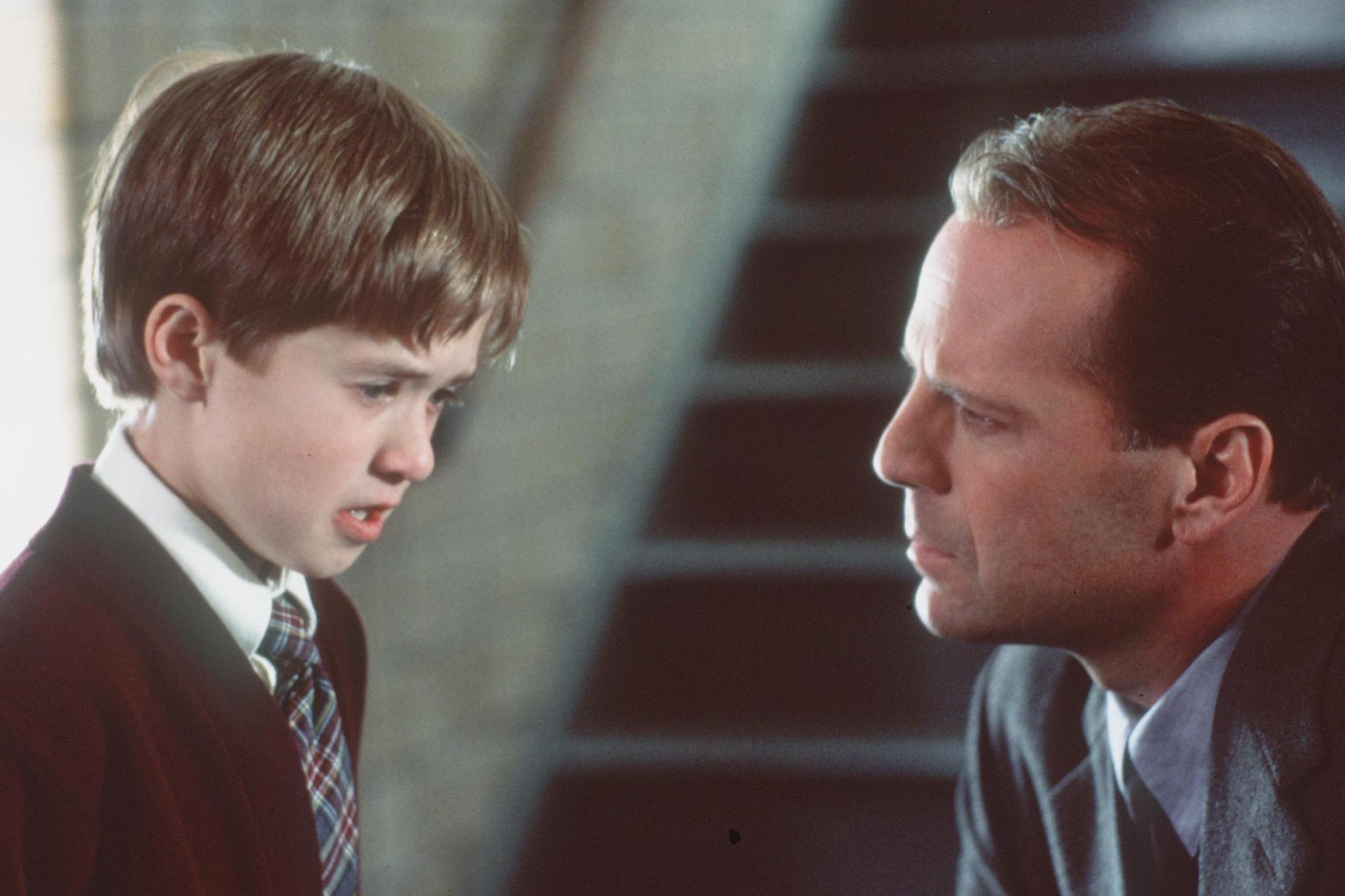‘I see dead people’: The Sixth Sense was both a blessing and a curse in disguise for M Night Shyamalan
On the 20th anniversary of M Night Shyamalan’s magnum opus, Alexandra Pollard argues that the film made the then-28-year-old’s career – and killed it


This article contains spoilers. But perhaps that warning is redundant, given that M Night Shyamalan – the director of The Sixth Sense (1999), Unbreakable (2000), The Village (2004) and The Happening (2008) – has become synonymous with plot twists. The grandparents are escaped mental patients. The trees are vengeful murderers. This is actually modern-day America. He’s been dead the whole time. Over the course of his 25-year career, Shyamalan has appointed himself the plot twist king. And that, you could argue, has been his downfall.
It all started 20 years ago on Tuesday, with the release of The Sixth Sense. Shyamalan was just 28 years old when he wrote and directed the film that made his career, but also, in a roundabout way, killed it. Starring Toni Collette, Bruce Willis (who until then was best known as the smashing, punching star of Die Hard) and 11-year-old Haley Joel Osment, the film was a unique kind of horror. The kind that was just a violin screech and an unnerving inflection away from being a poignant family drama. So much so that Collette, who plays the mother of a little boy who’s convinced he can see dead people, didn’t realise the film was a horror until after its release.
That’s what makes The Sixth Sense so successful. Even without the ultimate rug pull – that Willis’s child psychologist Malcolm Crowe, who has been counselling young Cole through his visions, is actually dead himself (you were warned) – the film would have been a masterpiece. There is enough care put into its tension-building, its relationship dynamics, its subtle sense of dread, that the twist feels like a final flourish, not a linchpin without which everything would fall apart.
Shyamalan would probably deny it, but the success of The Sixth Sense – which received rave reviews and made over $670 million from a $40 million budget – became something of a poisoned chalice for the director, who spent the next few decades trying and largely failing to pull off that same trick. True, Unbreakable, Signs and The Village, all made in the following five years, were fairly well-reviewed, with twists that just about worked – but already, patience was wearing thin.
Of the denouement of The Village, which starred Bryce Dallas-Howard as a blind woman who must make her way through a forest seemingly plagued by monsters, revered critic Roger Ebert wrote: “To call it an anti-climax would be an insult not only to climaxes but to prefixes.” By the time The Lady in the Water arrived two years later, Ebert had lost patience entirely. Shyamalan’s films, he said, were “con games”, and this one was a “poorly written, stiffly directed, audience-insulting story-without-a-cause”. The Lady in the Water marked the beginning of a slump for Shyamalan, if not in box office success then certainly in reputation. With The Sixth Sense, he had painted himself into a corner, and many of the films he made post 2004 – The Lady in the Water, The Happening, The Last Airbender, After Earth – just weren’t good enough to earn their twists. The Happening was particularly derided, thanks in large part to a scene in which Mark Wahlberg has a quiet word with a plastic plant.
And what’s worse, they opened the floodgates for a whole host of lesser films anxious to cash in on our appetite for surprise – the nadir of which, you could argue, came this year with Serenity, a film whose story about a hunt for a tuna fish drowns in its own stupidity.
It’s not as though Shyamalan’s talent is limited to shock tactics – the same year that The Sixth Sense came out, he co-wrote the screenplay for Stuart Little, a silly but sweet family film about an adopted mouse, and is purported (by himself) to have ghost-written She’s All That, a sharp, edgy high-school comedy. “It’s not like a dance move,” Shyamalan once said of his reputation for twists. “It’s not the moonwalk. If it was, then it would be a burden – ‘All right, when’s he gonna do the moonwalk?’” But that is exactly what people feel when they go into one of his films.
And he must know that, or he wouldn’t have backed out of his planned adaptation of Yann Martel’s novel The Life of Pi – which was instead directed by Ang Lee in 2012. “I love that book,” he said, “but I was hesitant because it has kind of a twist ending. And I was concerned that as soon as you put my name on it, everybody would have a different experience. Whereas if someone else did it, it would be much more satisfying, I think.”
Things are looking up, though. With recent offerings such as The Visit (2015) and Split (2016), Shyamalan has started to return to what he managed so beautifully with The Sixth Sense – creating art that works with or without a shock ending. Thank goodness – I was starting to worry that he had jumped the shark. But maybe the shark wasn’t even alive to begin with.
Join our commenting forum
Join thought-provoking conversations, follow other Independent readers and see their replies
Comments
Bookmark popover
Removed from bookmarks